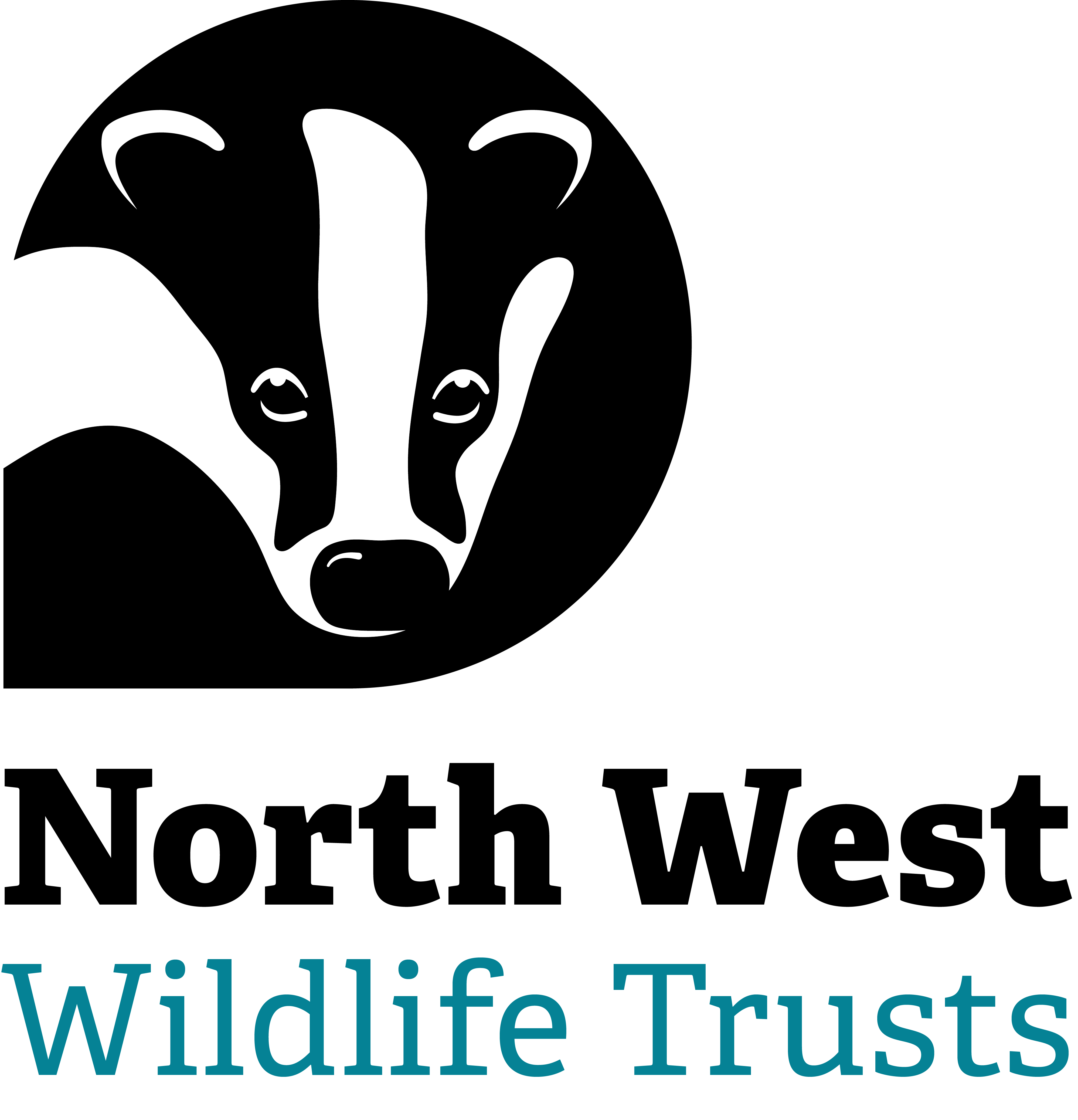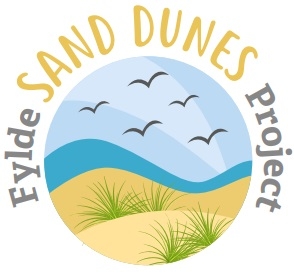
With the help of volunteers and the local community, the Fylde Sand Dunes Project works hard to make the dunes a better place for both wildlife and people.
The Fylde sand dunes are an important feature of the coastline, covering approximately 80 hectares between Starr Gate in the North and Lytham in the South.
Unfortunately over the past 150 years, more than 80% of our sand dunes have been lost. This loss is mainly due to the urban expansion of our coastal towns. However, while much depleted, the remaining dunes in Fylde make up more than 90% of Lancashire’s sand dunes, and still form the most significant part of the Borough’s coastal defence. It is therefore important that we protect and conserve this valuable asset to our coastline.
Aims
The main aims for management of the Fylde sand dunes are to:
- Enhance the nature conservation interest of the coastal habitats
- Improve the efficiency of the dunes and saltmarsh as soft sea-defence
- Enhance public appreciation and enjoyment of the dunes

Project funders and partners
Based on the Fylde coast, The Fylde Sand Dunes Project is a partnership between Fylde Council, Blackpool Council and The Wildlife Trust for Lancashire, Manchester and North Merseyside. The project is currently exclusively funded by The Environment Agency until 2027.

Habitats and wildlife
The range of conditions in a sand dune habitat supports a surprisingly rich variety of plants and wildlife that are well adapted to their environment.
There are over 280 vascular plant species recorded on the Fylde sand dunes, including several internationally rare plants which are endemic to sand dunes in the UK, including the interestingly named Isle of Man cabbage.
Insects are numerous and varied in the dunes, with over 150 species of butterflies and moths recorded. The Fylde dunes are also home to breeding birds including stonechats, skylarks and reed buntings.

Flood defence
The dunes are not only important for wildlife and recreation, they are also crucial for their flood defence properties. The dunes act as a natural barrier to the sea at high tide, and release sand during storm conditions to reduce wave action. The aims of the Fylde Sand Dunes Project feed in to the Environment Agency's Shoreline Management Plan (SMP2); a non-statutory, high level policy document for coastal flooding and erosion risk management planning.
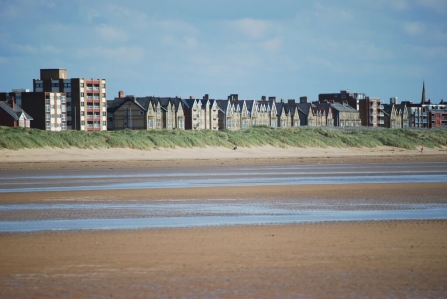
Practical conservation
The project carries out regular practical conservation methods on the dunes which includes:
- Controlling invasive non-native species
- Repairing the dunes by thatching and filling blow-outs to reduce sand loss from the system
- Developing pathways to create recognisable access points and reduce dune erosion
- Creating dune slacks to encourage a greater diversity of wildlife
- Planting dune grasses and using chestnut paling and other natural materials to trap wind-blown sand and create new dunes on the foreshore.
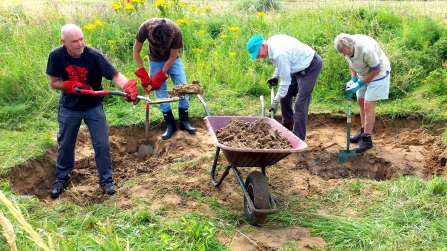
If you would like to get involved, click on the link and look for sand dune conservation on our volunteering opportunites page
Christmas tree planting
Christmas just keeps on giving for residents of Lytham and St Anne’s as recycled trees are used to provide a defence against sand and sea. The Christmas trees play a vital role as the branches and pines from the trees stick out of the beach and trap sand particles as they drift ashore, helping sand to accumulate and eventually build new dunes.
The trees are donated to drop off points along the Fylde coast and are then used to create sand dunes on the foreshore of the local beaches.
Why Christmas trees are going back up in Lytham and St Annes.
News article by That's Lancashire, published on 8 Feb 2017.
Recycling Christmas trees is a great way of engaging with the local community. Nearly every home will have a Christmas tree that would otherwise go to waste at the end of the holiday, but recycling them means that they won’t. The Christmas trees play an important role in helping to improve the dunes as a natural sea defence, trapping windblown sands which then encourages dune grasses to grow.Fylde Council
Community engagement and education
We believe that community engagement plays an important role in encouraging both visitors and residents to feel a sense of ownership for their local coastline.
The Fylde Sand Dunes Project offers an outreach programme delivering public engagement and education in the form of:
- Talks and presentations
- Helping students to achieve the conservation aspect of the John Muir Award
- Delivering a wide range of coastal events including: beached art competitions, mini-beast hunting, mud dipping, beach bonanzas, sand dune safari's and many more! For a full list of our upcoming events please click here.
- Guided walks
- Beach School
For more information on our outreach programme please click on the links above or get in touch via email.

Get involved
We're looking for enthusiastic volunteers to help in the delivery of our project. We hold regular volunteer work parties tackling practical conservation on the dunes.
If you are passionate about your local area and keen to make a difference please get in touch.
For more volunteering opportunities please follow the link.
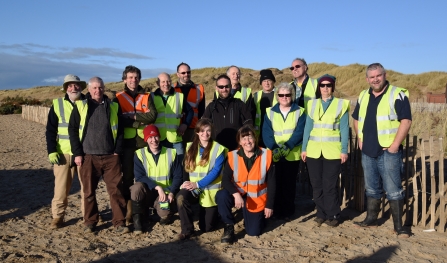
Fylde Sand Dunes Project Promotional Video (https://youtu.be/TNBNKN62lOs)
Fylde Sand Dunes Project Promotional Video. Credit: Jack Bradshaw
Find out more
Read our blog
"I feel really good after a day of practical work on the dunes. It's rather therapeutic, and I've learnt a lot about dune processes, vegetation and wildlife whilst volunteering with this project”
